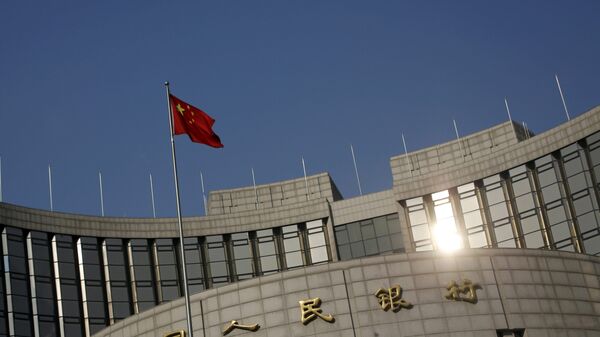Sputnik: On Monday, the US designated China as a “currency manipulator.” In your opinion, how will this influence markets’ behaviour in the long term? Does this formal designation change the game?
Stuart Orr: Managing the value of a currency is a common form of economic control and is something that China has engaged in for some time. I can’t see this designation significantly affecting any trade intentions. For example, trade between China and Singapore will be dependent upon the relative exchange rates and, whilst this may be influenced by China’s economic control of the value of its currency, this is not going to be the predominant factor in the exchange, especially if the Singaporean dollar has also depreciated. Having said that, China’s devaluation of the Yuan seems to have precipitated a drop in many markets including the Australian market which had until now been steadily growing despite the trade wars and other global factors.
Sputnik: Why has China allowed its currency to drop in the first place? How effective can this method be?
Stuart Orr: Previously, China has held down the value of its currency specifically to encourage economic growth. As China’s economic growth and the world economy both slow, there is a reasonable logic to holding down the value of the Yuan and increasing the export competitiveness of China’s manufacturing industries. The drawback, however, is that this move makes imported technology and materials more expensive and may, in the long-term, slow down the rate of technological development of Chinese industry. It also reduces the international value of China’s domestic currency reserves.
Sputnik: How viable is the US designation overall? What consequences will it have and what future steps can we expect from Washington?
Stuart Orr: This designation is certainly a political signal from the US that it is annoyed with China’s attempt to compensate for the effect of the tariff trade barriers by reducing the price of products that the US imports from China. It could also be the preliminary notice of the intention to implement more trade barriers. So far, the US has made little use of non-tariff barriers, such as content regulation, however, it could increase their role in the future.
Sputnik: Earlier, Chinese companies halted purchases of US agricultural products in response to additional tariffs from Washington. How does this current escalation impact the economies of both countries? How high is the risk of recessions?
Stuart Orr: China has shown a propensity to respond to actions which interfere with its development plans. This even occurs within China as the events unfolding in Hong Kong and their motivations have demonstrated. China is less likely to react to designations, however, unless there is a subsequent economic or political action. China’s current actions will increase its exports to the US and thus deepen the imbalance of trade in the short-term. This will benefit the Chinese economy at the expense of the US balance of trade. It is unlikely to be sustainable, however, as China does not have sufficient cash reserves to hold down the value of the Yuan in the long term. It looks as though the devalued Yuan is pulling the value of other currencies down and this could potentially lead to a recession if other economies are not sufficiently robust to withstand this pressure in the short-term.
The views and opinions expressed in this article are solely those of the speaker and do not necessarily reflect Sputnik's position.

